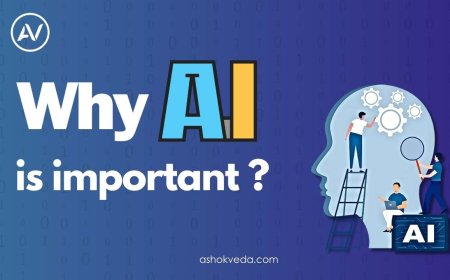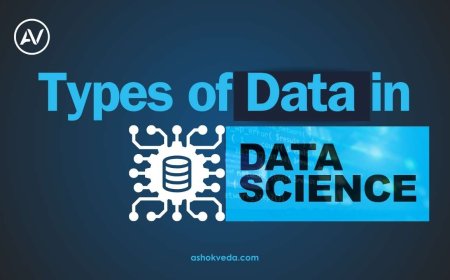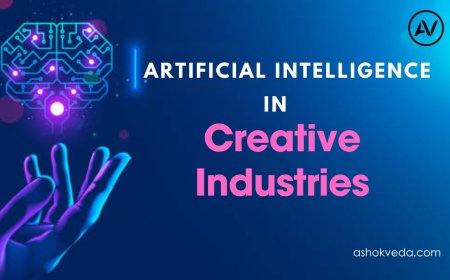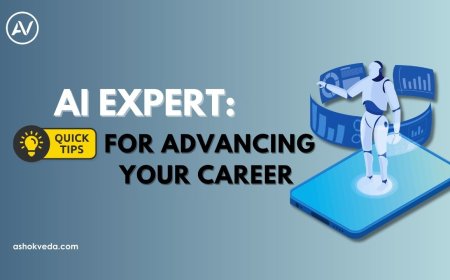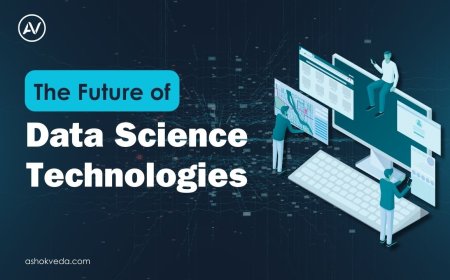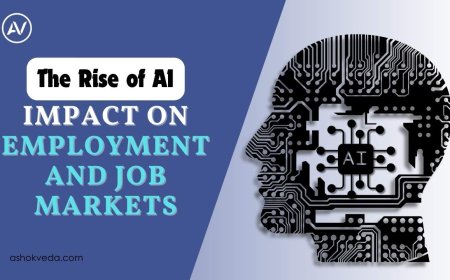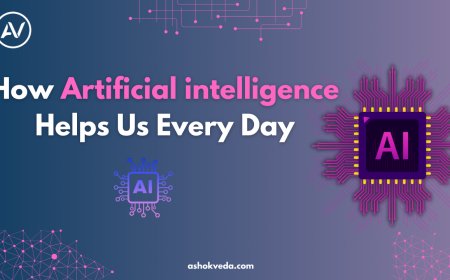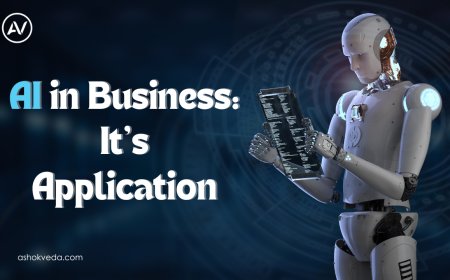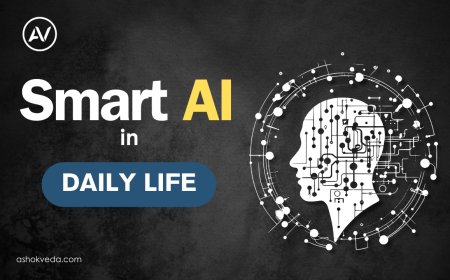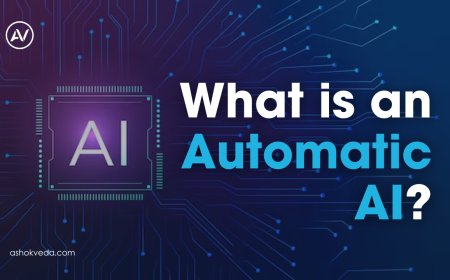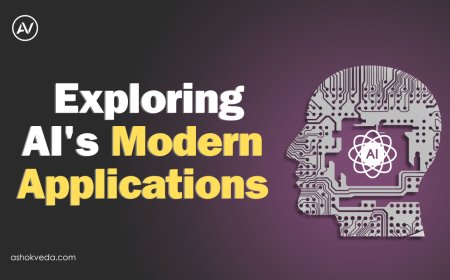Artificial Intelligence is changing how we live and work, making tasks easier and solving problems that were once thought to be impossible. This technology is not just about robots or talking computers; it's a broad field that includes teaching machines to learn, make decisions, and understand human language. Because of its wide applications, from healthcare to finance, AI is becoming a crucial part of many industries.
Today, businesses and organizations increasingly rely on AI to improve their services, create new products, and make better decisions. This growing use of AI has led to a higher demand for skilled professionals who can develop, manage, and implement AI technologies. Whether it's creating smart algorithms or analyzing data to glean insights, AI professionals are in high demand.
Understanding AI
Artificial Intelligence is a branch of computer science focused on creating machines that can perform tasks that typically require human intelligence. This means machines are designed to learn from experience, adjust to new inputs, and perform human-like tasks. Let's break down the key components of AI and explore its impact across various sectors.
Key Components of AI
-
Machine Learning: This is the core of AI, where machines learn from data to make decisions with minimal human intervention. Imagine a computer learning to recognize patterns from vast amounts of data, much like a child learns to identify colors.
-
Natural Language Processing (NLP): NLP enables machines to understand and interpret human language. A simple example is your smartphone's voice assistant, which can understand your questions and provide answers.
-
Robotics: This field combines AI with physical machines, allowing robots to perform tasks ranging from assembly line work to complex surgery. These robots can adapt to their environment and improve their performance over time.
AI's Impact on Various Sectors
AI is revolutionizing multiple sectors by providing efficient solutions, reducing errors, and speeding up processes:
-
Healthcare: AI is used to diagnose diseases more accurately and quickly than traditional methods. It's also revolutionizing patient care with personalized medicine and treatment plans.
-
Finance: AI helps detect fraud, manage risks, and provide personalized financial advice, transforming how we interact with our finances.
-
Automotive: Self-driving cars are a prime example of AI's impact, aiming to reduce accidents and improve transportation efficiency.
AI Adoption and Market Growth
The adoption of AI technologies has been rapidly increasing across industries, driven by their potential to transform operations and create new business opportunities. Current statistics reveal significant growth in the AI market, with projections indicating continued expansion in the coming years. This growth is fueled by the ongoing development of AI technologies and their integration into various products and services, highlighting the growing importance of AI in driving innovation and efficiency across the global economy.
By understanding AI and its key components, we can better appreciate its potential to revolutionize industries, enhance our daily lives, and drive future technological advancements.
Choosing a career in AI presents a promising path for those intrigued by technology and its application in solving complex challenges. Here's a closer look at why venturing into AI could be a wise decision:
Job Prospects and Demand for AI Skills
The need for AI expertise is on the rise across various industries. Companies, from tech giants to startups, are on the lookout for skilled professionals who can navigate the complexities of AI. This demand translates into ample job opportunities and a competitive salary range for those with the requisite AI skills. Whether you're interested in data analysis, machine learning, or developing AI applications, the job market is robust and varied.
Potential for Innovation
AI stands at the forefront of technological innovation. Working in AI allows you to contribute to advancements that can redefine how we live, work, and interact. From developing smarter healthcare solutions to creating more efficient energy systems, AI professionals play a crucial role in driving progress. This career path offers the unique opportunity to be part of teams that turn imaginative ideas into reality, shaping the future of technology.
Solving Real-world Problems
One of the most rewarding aspects of a career in AI is the ability to tackle and solve real-world issues. AI has the potential to address some of the most pressing challenges facing our world today, including climate change, healthcare, and education. By designing algorithms that can analyze vast amounts of data and learn from it, AI professionals contribute to creating solutions that can improve the quality of life for people around the globe.
A career in AI is not only marked by promising job prospects and the innovation potential but also offers the profound satisfaction of working on projects that can have a real impact on society. For those driven by curiosity and the desire to make a difference, AI presents a fertile ground for professional growth and personal fulfillment.
Essential Skills for a Career in AI
A career in Artificial Intelligence (AI) requires a blend of specific technical know-how, the ability to think critically, and the right educational background. Here’s a breakdown of the essential skills needed for anyone considering this path, described in straightforward terms.
Technical Skills
1. Programming Languages: Knowing how to code is crucial in AI. Python and R are two languages often used because they have libraries and tools specifically designed for AI projects. Think of programming languages as the foundation of building AI solutions they're the basic tools you'll use to create and instruct AI systems.
2. Machine Learning Algorithms: These are sets of rules that computers follow to perform tasks without being explicitly programmed for each step. Learning how these algorithms work allows you to teach computers to make decisions based on data.
3. Data Analysis: AI heavily relies on data. Understanding how to organize, examine, and extract meaningful insights from data helps in creating AI systems that can interpret and learn from information.
4. Neural Networks: These are computer systems modeled on the human brain's network of neurons. They help computers learn from examples. Knowing how neural networks work is key to developing advanced AI applications, like speech recognition or translating languages.
Soft Skills
1. Critical Thinking: This means looking at problems in new ways to find solutions. In AI, you often need to figure out the best way to approach a challenge or how to improve existing solutions.
2. Problem-solving: AI professionals regularly encounter complex issues needing innovative solutions. Being good at problem-solving means you can break down these issues and work through them step by step.
3. Communication: Whether it’s explaining complex AI concepts to non-experts or collaborating with team members, being able to share ideas clearly is essential.
4. Ethical Considerations in AI: As AI technologies impact many aspects of society, understanding the ethical implications and considering the consequences of AI applications is crucial.
Career Paths in AI
AI offers a variety of career paths, each with its unique responsibilities and skill requirements. Below, we explore some of these roles to help you understand where you might fit in the AI industry.
Data Scientist
Data scientists analyze and interpret complex data to help companies make decisions. They use statistical methods, machine learning, and data analysis techniques to uncover patterns and insights from data. Skills needed include proficiency in programming languages like Python or R, knowledge of statistical methods, and the ability to work with large datasets. Career growth can lead to senior data scientist roles or data analytics manager positions.
Machine Learning Engineer
Machine learning engineers design and implement machine learning applications. They focus on creating systems that can learn from and make decisions based on data. Essential skills include a strong background in computer science, programming, and a deep understanding of machine learning algorithms. Career trajectory often leads towards leading larger projects or specializing in innovative machine learning techniques.
AI Research Scientist
AI research scientists push the boundaries of what AI can achieve. They conduct experiments and research to develop new algorithms and technologies in AI. This role requires a strong foundation in mathematics, programming, and machine learning, often supported by a PhD. Career advancement may involve leading research teams or projects in cutting-edge areas of AI.
AI Ethics Officer
AI ethics officers ensure that AI technologies are developed and used responsibly. They address ethical concerns such as privacy, bias, and fairness in AI systems. This role requires an understanding of both technology and ethical principles, with skills in policy development and stakeholder engagement. Career growth can lead to senior roles in governance, policy, or oversight within organizations focusing on ethical technology use.
AI Job Market
Standing out to potential employers and making meaningful connections in the industry can significantly impact your career trajectory. Here, we delve into practical strategies to enhance your visibility in the AI job market, focusing on building a strong portfolio, the value of networking, and the necessity of staying abreast of the latest trends and technologies.
Building a Strong AI Portfolio
1. Start with Projects: Engage in projects that demonstrate your AI skills. This could be anything from machine learning models that predict stock prices to natural language processing projects that analyze social media sentiment. Use these projects to showcase your problem-solving abilities and technical expertise.
2. Document Your Work: For each project, maintain detailed documentation that outlines your objectives, the processes you followed, and the outcomes. Include any challenges you encountered and how you overcame them. This not only highlights your technical skills but also your critical thinking and problem-solving abilities.
3. Share Your Projects: Utilize platforms like GitHub to share your code and project portfolios. This makes it easier for potential employers to see your work in action. Additionally, consider writing blog posts or creating videos that explain your projects, which can help demonstrate your communication skills and ability to convey complex ideas clearly.
The Importance of Networking and Community Involvement
1. Attend Hackathons and Conferences: Participating in hackathons and attending AI conferences can be a great way to meet people in the industry, learn new skills, and stay informed about cutting-edge technologies. These events offer a platform to showcase your abilities and to learn from peers and leaders in the field.
2. Engage in Online Forums: Join AI-related forums and social media groups. Participating in discussions, asking questions, and sharing insights can help you build a reputation within the AI community. Platforms like LinkedIn, Reddit’s AI communities, and Stack Overflow are excellent places to start.
3. Collaborate on Projects: Working on projects with peers or contributing to open-source AI projects can enhance your skills and expose you to different perspectives and techniques. Collaboration is a key aspect of the AI field, and showing that you can work effectively in a team is valuable to potential employers.
Staying Updated with AI Trends and Continuous Learning
1. Follow Industry News: Subscribe to AI newsletters, follow relevant blogs, and listen to podcasts to keep up with new developments, tools, and technologies in AI. This will not only fuel your curiosity but also inspire new project ideas and improve your understanding of the field.
2. Continuous Learning: The AI field is constantly evolving, making continuous learning essential. Take advantage of online courses, workshops, and webinars to learn new AI frameworks and programming languages. Platforms like Coursera, edX, and Udacity offer specialized courses that can help you expand your knowledge and skills.
3. Apply New Knowledge: Try to apply what you learn in your projects. Experimenting with new technologies and methodologies can help solidify your understanding and demonstrate your adaptability and eagerness to learn, which are highly valued in the AI job market.
Building a robust portfolio, actively engaging in the AI community, and committing to lifelong learning are pivotal steps in establishing a successful career in AI. These efforts not only enhance your skills but also increase your visibility to potential employers, opening doors to new opportunities in this dynamic and exciting field.
























